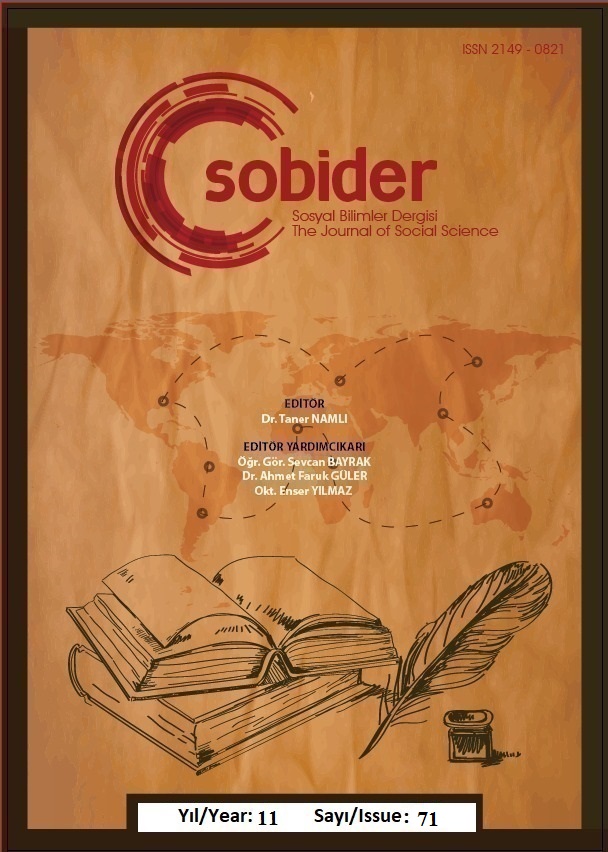Author :
Abstract
Osmanlı Devleti, kuruluşundan itibaren hızlı bir fetih politikası ile topraklarını çok geniş bir alana yaymıştır. XV. yüzyıldan itibaren imparatorluk çağına ulaşan Osmanlı ülkesi, yönetimi içerisine aldığı yeni toprakları, düzenli aralıklarla tahrir ettirir ve bu doğrultuda defterler düzenleyerek devlete ödenecek olan vergileri belirlerdi. Reaya hakkında kayıt altına alınan bu bilgiler Mufassal, İcmal ve Evkaf defterlerinde muhafaza edilerek bir kopyası hazırlanarak biri merkezde diğeri de ilgili sancakta saklanmıştır. Bu defterlerde, vergi verecek olan Osmanlı vatandaşı hakkında çok ayrıntılı bilgiler kaydedilmekle birlikte, devletin gerek iktisadi, gerekse sosyolojik yapısı hakkında önemli veriler ihtiva etmesi bakımından mühim arşiv kaynakları arasında kabul edilmektedir. Osmanlı Devleti’nin kayıt sisteminin muazzam bir şekilde tutulmasının sebeplerinden birisi, hiç şüphesiz devletin ekonomisinin istikrarını sağlamaktır. Bu istikrarı sağlamak için ise dinden gelen uygulamalar ve örften gelen gelenekler tatbik edilmiştir. İktisadi hayatı belirli bir düzen içerisinde tutan bu temel prensipleri, şer’i olarak alınan vergiler ve örf’i olarak alınan vergiler olarak kategorize edilmektedir.
Keywords
Abstract
Since its establishment, the Ottoman Empire has spread its territory over a wide area with a rapid conquest policy. The Ottoman country, which reached the age of empire starting from the 15th century, had the new lands under its administration recorded at regular intervals and determined the taxes to be paid to the state by preparing books accordingly. This recorded information about rayah (public people) was kept in the "Mufassal", "İcmal" and "Evkaf" books, two copies was prepared and one was kept in the center (capital) and the other in the relevant sanjak (province). Although very detailed information about the Ottoman citizens who will pay taxes is recorded in these books, they are considered among the important archive sources as they contain important data about both the economic and sociological structure of the state. One of the reasons why the Ottoman Empire's registration system was maintained tremendously was undoubtedly to ensure the stability of the state's economy. In order to ensure this stability, practices from religion and traditions from customs were implemented. These basic principles that keep economic life in a certain order are categorized as taxes collected as sharia and taxes collected as customary.





